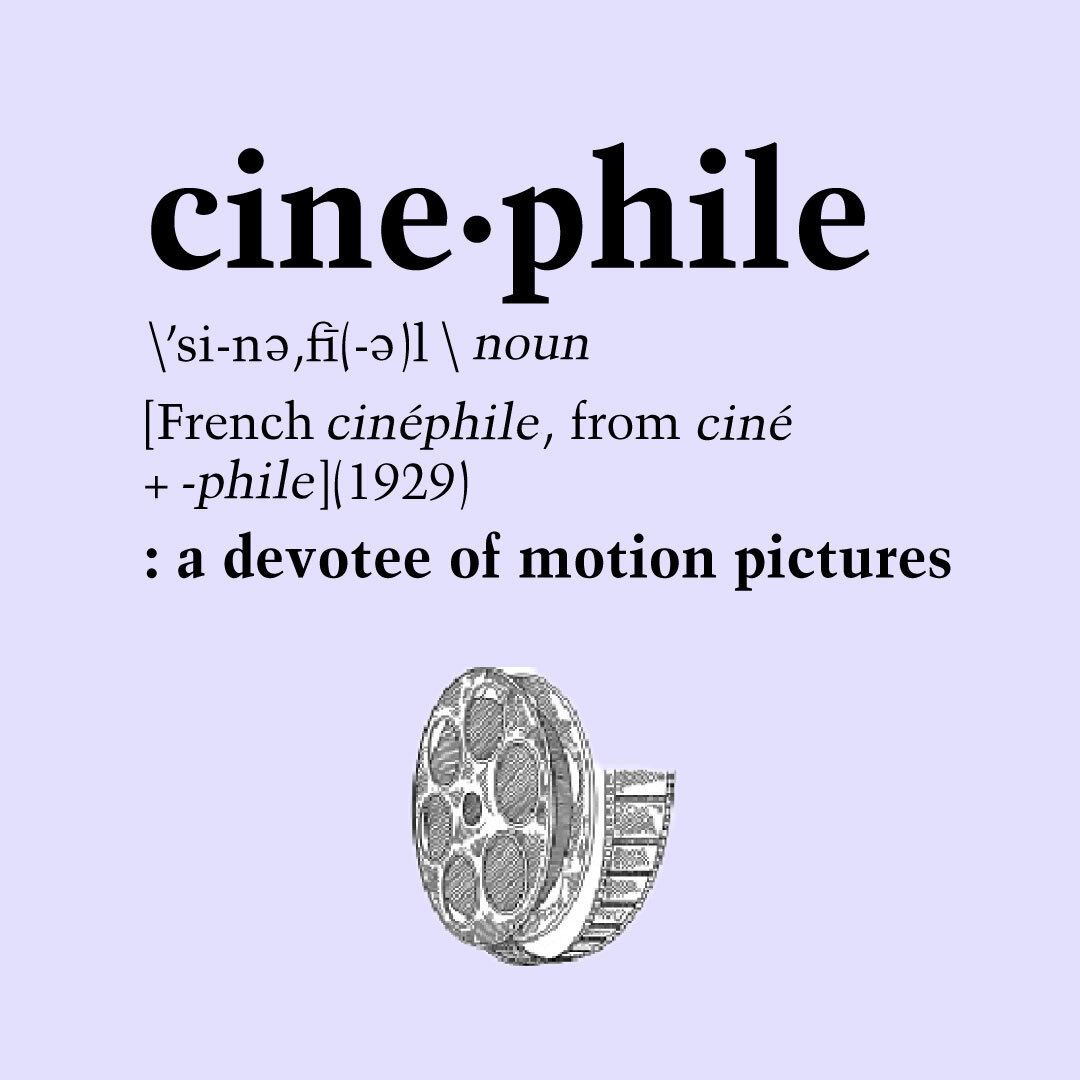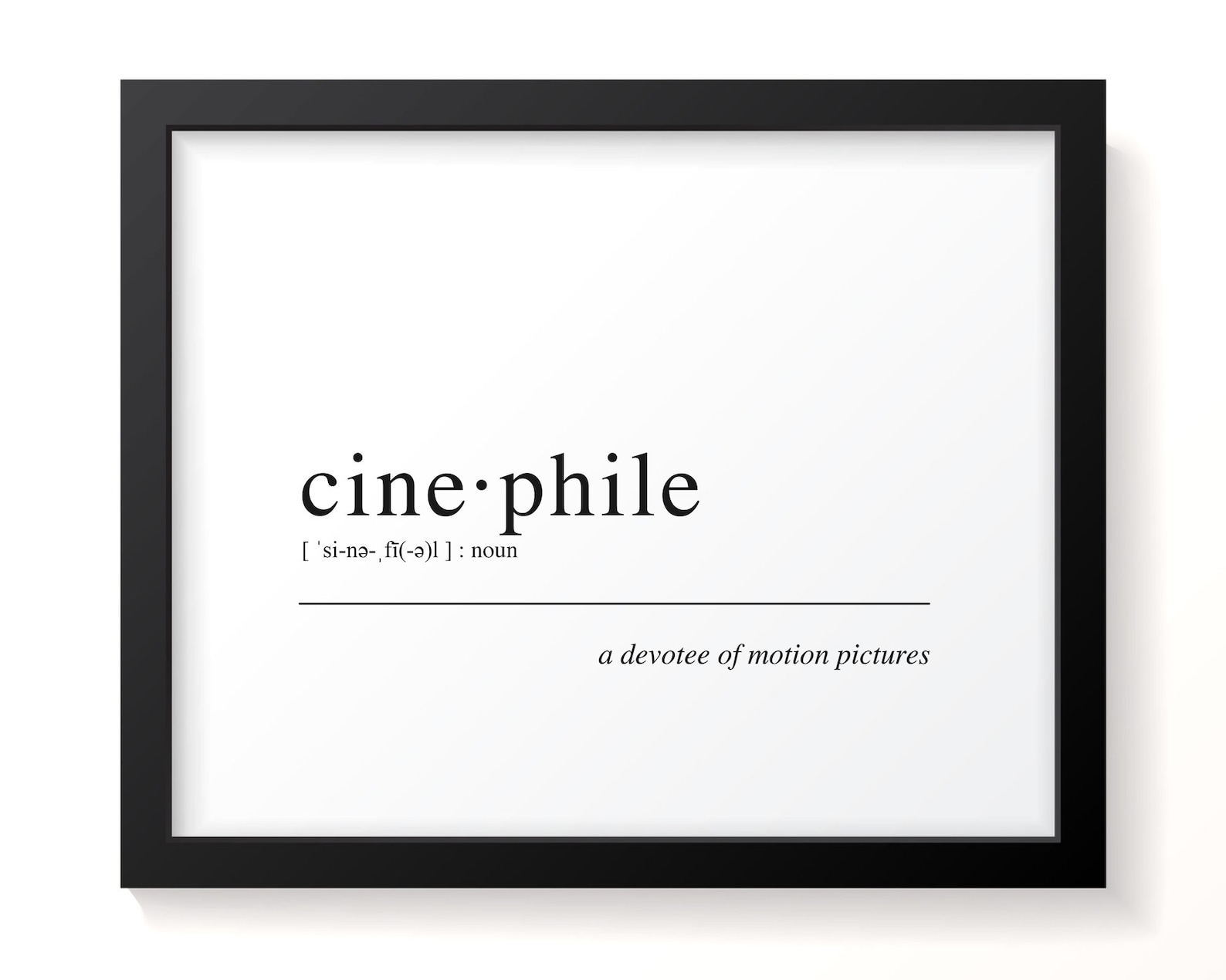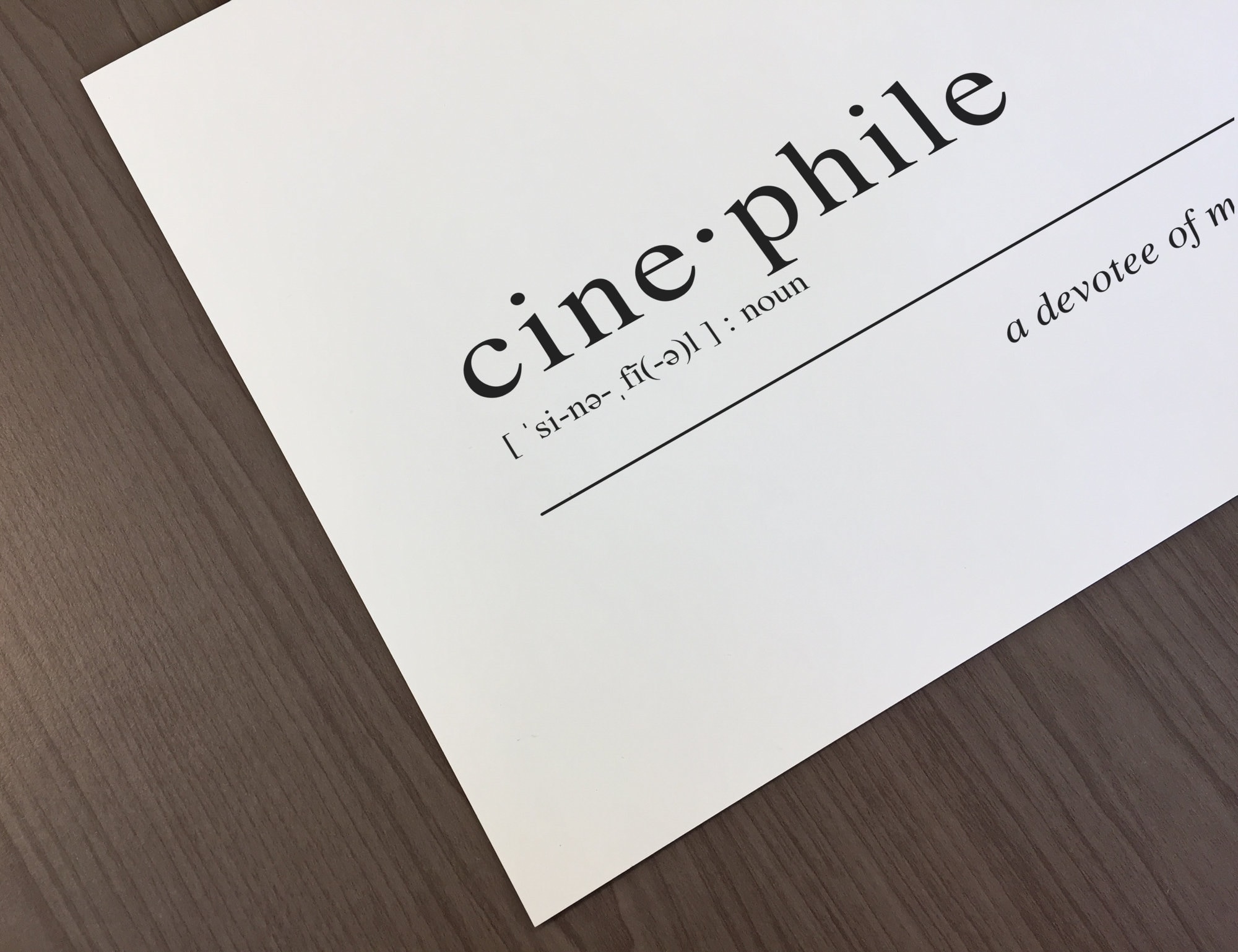Cinephile: Meaning & Definition | What Does "Cinephile" Mean?
Ever wondered what separates the casual moviegoer from the true aficionado? The answer lies within the term "cinephile," a word that encapsulates a deep and passionate love for the art of cinema, far beyond mere entertainment. This exploration delves into the nuances of this fascinating term, unpacking its meaning, origins, and the cultural significance it holds.
The definition of a cinephile, in its simplest form, is "a person who is very interested in and enthusiastic about cinema as an art form, and knows a lot about films." This concise explanation from sources like Dictionary.com and Cambridge Dictionary, however, barely scratches the surface. Being a cinephile is not just about watching movies; its about experiencing them. It's about understanding the language of film, the techniques used, the historical context, and the cultural impact of each work.
The roots of the word "cinephile" are firmly planted in the French language, sharing a linguistic kinship with the term "bibliophile" (book lover). Like its literary counterpart, "cinephile" was directly borrowed into English, indicating the early recognition of cinema's artistic merit and the emergence of a dedicated following. As David Thomson noted in The Guardian on March 3, 2016, the term arrived alongside other words, painting a picture of an evolving cultural landscape where new forms of art were gaining recognition and adherents.
- Secure Iot P2p Ssh For Remote Access Raspberry Pi
- Buster Murdaugh Brooklynn White A New Chapter Amidst The Murdaugh Saga
| Aspect | Details |
|---|---|
| Term | Cinephile |
| Definition | An enthusiast of films and the cinema; a person who is very interested in and enthusiastic about cinema as an art form, and knows a lot about films. |
| Synonyms | Film lover, movie enthusiast, film buff, moviegoer. |
| Origin | Borrowed directly from French, similar to "bibliophile." |
| Characteristics | Passionate interest in films, film theory, and film criticism; knowledge of film history, directors, actors, and techniques; engagement with cinema as an art form. |
| Distinction | Often differentiated from a casual moviegoer by a deeper appreciation for film as an art form, and a more sophisticated understanding of its nuances. |
| Examples of Use | "He is a complete cinephile." (Longman Dictionary) "Cinephiles have found the way back to the movie theaters in France on Monday..." (referring to the reopening of cinemas after a period of closure) |
| Reference | Dictionary.com |
The Longman Dictionary of Contemporary English defines a cinephile as "someone who likes films very much and considers them to be a form of art, not just entertainment". This highlights a crucial distinction. For the cinephile, films are not passive entertainment; they are experiences to be analyzed, appreciated, and discussed. This perspective distinguishes them from the casual spectator who, as the example suggests, might appreciate classics like "Vertigo" or "Rear Window," but perhaps lacks the depth of understanding and the historical context that a true cinephile possesses.
The world of the cinephile is rich and varied. It encompasses the meticulous study of film history, the exploration of different genres and national cinemas, and the close examination of cinematic techniques. A cinephile delves into the works of auteurs, analyzes the use of cinematography, sound design, and editing, and understands the role of symbolism and thematic elements within a film. They are not just viewers; they are active participants in the cinematic experience.
The appreciation of cinema can also involve a degree of "knowing" or "understanding" that goes beyond mere enjoyment. This is a point that writers, critics, and academics often touch upon. For instance, the idea of writing about cinema as a "sadistic practice," as proposed by some, speaks to the inherent challenge of analyzing an art form that often thrives on subjective interpretation and emotional impact. Analyzing a film can be like analyzing a dream, where meanings are layered and subject to different perspectives, depending on your personal perspective.
- Chandra Wilson Net Worth 2024 How Rich Is The Actress
- Where To Watch Benjamin Hollingsworth Movies Shows Streaming Guide
The digital age, with its easy access to an enormous library of films and its facilitation of online discussion forums, has also reshaped the landscape of cinephilia. As Jullier and Leveratto (2010) note, the internet has resulted in the diversification of cinephile publics, giving more people the opportunity to participate, creating new spaces and opportunities for discussion and appreciation. This democratization of access has both broadened and complicated the definition of what it means to be a cinephile today.
The term "cinephile" can be contrasted with "movie lover," a term that may encompass a broader range of appreciation. The "movie lover" appreciates cinema, but the "cinephile" often has more sophisticated tastes, and also a deep understanding of its history. The difference, to put it simply, can be likened to the distinction between a casual fan of sports and a serious student of the game, able to explain its strategy and history in detail.
The concept of cinephilia has evolved over time. The study of cinephilia and its history can start from the ancient greece, to the French New Wave and beyond, the constant evolution of cinema has been a cornerstone to the evolution of cinephilia, which constantly adapts, learns and evolves. The rise and decline of interest in certain directors, the evolution of filmmaking techniques and many more, and the way cinephiles interpret them, is as much a part of the art form as the actual movies themselves.
The evolution of cinema, from the silent era to the blockbuster age, provides ample opportunity for debate and passion. Those who appreciate older films, or those who are into a very specific genre, are often labeled as cinephiles, for understanding the nuances of these genres, their evolution and the meaning of their history. It is this understanding of the meaning that lies behind the art that truly sets a cinephile apart from others.
The French influence is very visible in the discussion of cinephiles, with the French New Wave being very influential in the study of cinema. The idea is that cinema is not merely an entertainment tool, but an art form that should be studied and analyzed to understand the many layers of meaning the filmmakers are trying to convey.
The French often used the term "auteur theory" in which directors were treated as artists. It is through this study that the cinephile comes to life: through the understanding of meaning, history, and technique, a cinephile truly understands, and appreciates, the art of cinema.
The opening of cinemas after a period of closure, as witnessed in France, saw the return of many cinephiles eager to get back to the experience of watching films on the big screen. It is a testament to their dedication, and also highlights the importance of shared viewing experiences, which is as much a part of the experience as the actual films themselves.
The Oxford Advanced Learner's Dictionary provides a concise definition, emphasizing that a cinephile is a person who loves films. They go further in this description by explaining that it also means a person who is devoted to watching movies. These words, however, miss the core of what it means to be a cinephile.
The passion for the medium is also found in those who create it: the directors, actors and technical staff who dedicate themselves to create something that a cinephile is capable of truly understanding. It goes beyond the casual interest, with those at the top of their game understanding the many layers of the art, which is what makes a true cinephile. The level of detail that they often possess is truly amazing, capable of analyzing the use of cinematography, and the way different shots affect the meaning of the movie.
The world of a cinephile encompasses understanding of different genres, from the classic films of Hollywood's Golden Age to the independent films of modern cinema. It also includes those who are interested in international cinema, allowing them to immerse themselves in different cultures through the films that they study.
As with any art form, there is an incredible breadth of information, and so the cinephile is always learning. They study the many facets of cinema, from the film theory to film criticism, and it is through this understanding that the cinephile truly comes to life.
From the evolution of cameras, the ways that movies are made, the use of CGI, or the techniques behind the movie's soundtrack, there are many factors in a movie that are interesting to a cinephile. The level of information and detail, along with the evolution of cinephilia, keeps the art form growing, with people getting more involved than ever.
There are many paths for a cinephile. They can choose to appreciate certain eras, certain genres, certain techniques, or certain directors. All of this is a product of the passion that makes a cinephile, and drives their understanding of the art form. The evolution of the concept of cinephilia, with its origins in the French language, and its direct entry into the English language, shows how integral the art form has become, across the world.
- Aidan Gillen From Game Of Thrones To Project Blue Book Beyond
- Robert Carlyle Movies Tv Shows Where To Watch More

Whitby Public Library on Twitter "RT Kanopy If you are "a devotee of

Movie Lover Cinephile Definition Art Print Classic Film and Etsy

Movie Lover Cinephile Definition Art Print Classic Film and Etsy